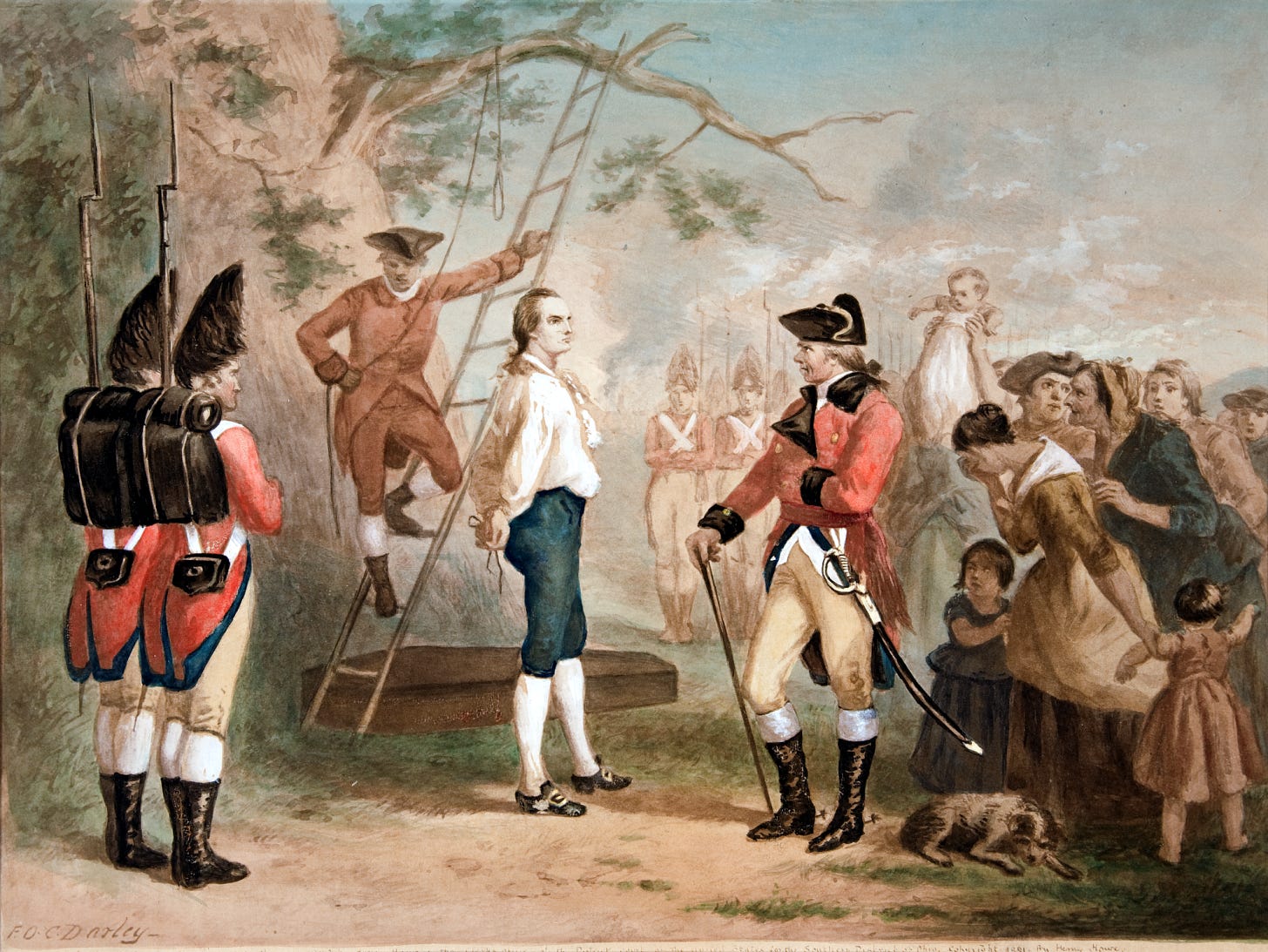On This Day, 8 September 1776 - Nathan Hale Spies for America
How a schoolteacher’s choice helped define courage
When the Continental Army stood on the brink of collapse in September 1776, morale was fading and information was scarce. In that tense moment, a young man of just 21 made a decision that still defines the word sacrifice. This is the story of a schoolteacher turned soldier who volunteered for a mission that no one else would touch. He would not return.
Heroic Choice in the Early Light
On the morning of 8 September 1776, General George Washington addressed a line of weary, uniformed men. The Revolutionary Army had just survived a brutal withdrawal from Long Island, and Washington knew that without good intelligence, they would not last long against the next British assault. He asked for a volunteer to cross into enemy lines and report on troop movements. No one moved.
Then, one man stepped forward. Nathan Hale, recently graduated from Yale and once a champion for equal education for women, had joined the fight with a teacher’s idealism and a soldier’s resolve. As others stayed silent, Hale offered himself. It was the sort of moment history rarely records, but never forgets.
He had little training in espionage. Just four days later, he would walk into British-held territory with nothing but a cover story, a paper, a pencil and the contents of his boots. His instructions were simple. Gather what you can, return immediately, and don’t get caught.
Into the Fire of New York
At first, Hale played the role of a schoolteacher looking for work. By day, he visited schools. At night, he listened in on conversations in taverns, sharing drinks with British officers, keeping his true mission close to his chest. His patience was paying off.
Then the British launched a new offensive. Manhattan burned. The American army scattered. And Nathan Hale, still behind enemy lines, now found himself with no safe route home. The East River was heavily patrolled. British soldiers had orders to find and hang any rebel spies. And soon, one of their loyalist operatives, Robert Rogers, found Hale.
Rogers posed as a fellow spy working for Washington. He gained Hale’s trust over drinks and long stories. But it was all a trap. Hale was arrested, searched, and the notes hidden in his boots gave him away. There was no trial, no appeal. Only the gallows.
The Gallows and the Last Words
On the morning of 22 September 1776, British soldiers led Nathan Hale to a tree where a rope hung from a thick branch. He had asked for a minister and a Bible. Both requests were refused. He wrote two letters, one to his commander and one to his mother, and walked to the ladder.
Accounts differ over what he said. The most famous version reads, “I only regret that I have but one life to lose for my country.” Whether or not those were his exact words, they captured the spirit of what he stood for. A man who stepped forward with no expectation of reward, only a deep belief in the cause of liberty.
He died with nothing to show for his effort. His intelligence never reached Washington. His mission failed. Yet the legacy of that moment has lasted far longer than any battle he could have fought.
A Legacy Cast in Bronze
In the years after his death, Nathan Hale became a symbol. A martyr for the idea that some causes are worth any cost. His statue now stands outside the CIA headquarters in Langley, Virginia, where a plaque names him America’s first intelligence officer. Others can be found in City Hall Park in New York, on Yale’s campus, and in his hometown of Coventry, Connecticut.
This was not the legacy he sought. It came long after the war was won. But it stands for something more than victory. It stands for choosing principle when the outcome is uncertain. For saying yes when everyone else stays silent.
Words That Still Matter
What endures about Nathan Hale’s story is not the tragedy or the betrayal. It is the calm clarity with which he chose to act. He was not a trained spy or a battle-hardened soldier. He was a young teacher who saw a nation being born and believed it was worth a risk that could not be undone.
In a time of public performance and political posturing, there is something quietly overwhelming about a man who spoke no boast, made no plea, and asked nothing for himself. He simply stepped forward. And for that, he is remembered.


